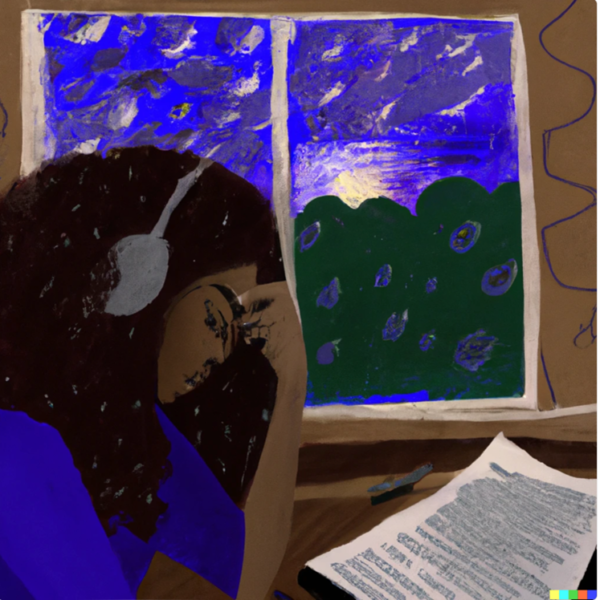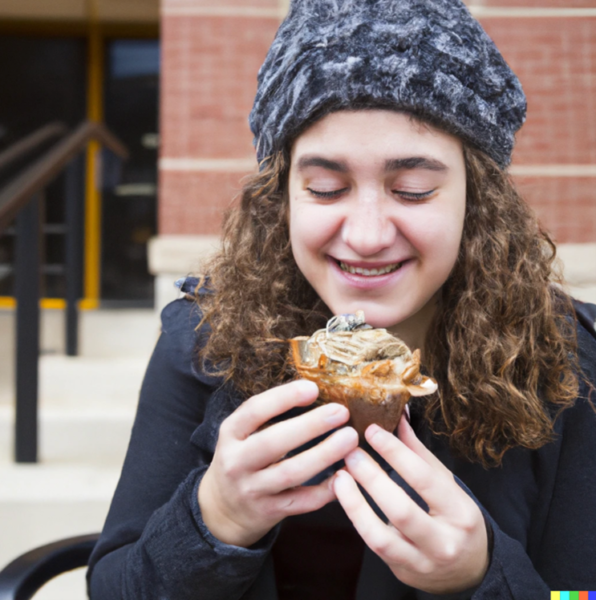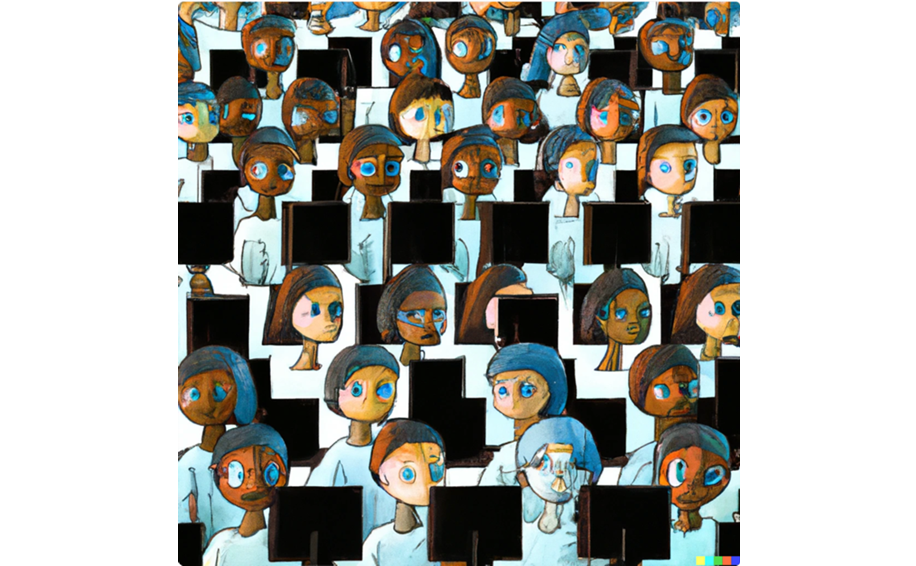Many challenges, from enrollment declines to disengaged students to pandemic-induced recalibrations, confront higher education at the moment.
But one disruption needs to occupy more space in our conversations: artificial intelligence.
It’s difficult to predict how college-level teaching will be disrupted by artificial intelligence (AI).
In recent years, AI technology has advanced significantly. It holds the potential to revolutionize education. However, the extent to which AI will be used in teaching is difficult to predict.
It’s likely that AI will be used in some capacity to assist with teaching through educational technology or online platforms. But it’s unlikely that AI will completely replace human teachers. Ultimately, the use of AI in teaching will depend on the decisions and policies as well as the availability of appropriate technology and the willingness of students and faculty to embrace it.
There are many technologies that are disrupting education and transforming the way that students learn. Some of the key technologies that are having a significant impact on education include:
• Learning management systems (LMS): These are online platforms like Canvas that enable teachers to create and deliver digital learning materials and assessments, track student progress, and provide feedback.
• Virtual and augmented reality: These technologies are being used to create immersive learning experiences that can make abstract concepts more concrete and engaging.
• Artificial intelligence and machine learning: These technologies are being used to personalize learning and to provide students with tailored feedback and support.
• Online learning platforms: These platforms, such as Coursera and Khan Academy, offer a wide range of online courses and resources that enable students to learn at their own pace and on their own schedules.
• Mobile devices: The widespread adoption of smartphones and tablets has made it possible for students to access learning materials and resources anytime, anywhere.
Many colleges have had conversations about enrollment drops.
There could be a variety of reasons why fewer students are applying to college: a lack of interest in pursuing higher education; a perception that the cost of college is too high; a lack of awareness about the benefits of a college education; or a belief that there are limited job opportunities for college graduates. It’s also possible that the COVID-19 pandemic has had an impact on the number of students applying to college, as it has disrupted many aspects of daily life and may have caused some students to reassess their plans for the future.
So how do we keep up with the changes and differences in the ways our students engage with their courses?

There are several ways that college faculty can keep up with our students and stay engaged with the material we are teaching. Some potential strategies include regularly attending professional development workshops or conferences to stay up-to-date on the latest research and best practices in their field and participating in online forums or discussion groups to connect with other educators and share ideas. Others feature using technology in the classroom to enhance the learning experience and staying in touch with students through email, office hours, or other means to provide additional support and guidance.
Ultimately, the key to staying engaged with students is to be committed to continuous learning and growth as an educator.
However, students do sometimes cheat on assignments.
Some possible reasons include a desire to get good grades without putting in the necessary effort, a belief that cheating is acceptable or even necessary to succeed, a lack of understanding of the assignment or the material being covered, a feeling of pressure to meet expectations or compete with other students, or a lack of support or guidance from teachers or parents.
Some students may cheat because they are struggling with time management or other challenges that make it difficult for them to complete assignments on their own. It’s important for educators to recognize the potential reasons for cheating and take steps to prevent it such as providing clear instructions and expectations, offering support and guidance, and enforcing consequences for cheating.

There are several ways that we can identify students who are cheating on assignments or exams. Some potential strategies include using plagiarism detection software to identify copied or unoriginal work (although this was recently removed as an option at some schools that stopped subscribing to “Turnitin”), administering exams or assignments in a proctored setting to prevent cheating.
Other tactics include requiring students to submit work electronically so that it can be easily compared for similarities; using open-book or take-home exams that allow students to use outside sources but make it easier to identify copied work; and providing clear guidelines and expectations for academic integrity and enforcing consequences for cheating.
It’s possible that some college students may use AI to write their papers, but it’s difficult to predict the extent to which this will happen.
AI technology has advanced significantly. There are now several tools and platforms available that claim to be able to generate high-quality written content. However, the use of AI for writing papers is likely to be limited. Many colleges and universities have strict policies against plagiarism and academic dishonesty. Most instructors are able to identify writing that has been generated by a machine.
The use of AI for writing papers may not be effective because it may not be able to capture the nuances and complexities of academic writing and it may not provide the same level of critical thinking and analysis expected in a college-level paper.
SPOILER:
Most of the preceding paragraphs were written by OpenAI’s tool “ChatGPT” (with extremely minor edits for online journalism), starting with the third paragraph, “It’s difficult to predict …” and ending with the paragraph above this one you are now reading, “The use of AI ….” I did NOT use Chat GPT for the first two paragraphs or for this one and what follows.
Here are the prompts I fed into ChatGPT:
• How is teaching at Ithaca College going to be disrupted by Artificial Intelligence?
• What technologies are disrupting education?
• Why are fewer students applying to college?
• How can teachers keep up with students?
• Why do students cheat?
• Will students use artificial intelligence to write their papers?
AI is now in public beta at https://openai.com.
You can sign up for a free account and give it a whirl. It’s not a matter of if our students will discover this tool, but when.
I am going to leave it up to readers of this piece to decide on whether or not faculty are prepared for the coming disruption propelled by the easy availability of AI tools.
As we grade our students’ final work from the fall semester and plan courses and assignments for the spring, remember this: the disruptions of AI cannot be ignored.
Ari Kissiloff is Assistant Professor of Strategic Communication at Ithaca College. He specializes in interactive media, web design, instructional and promotional video, computer applications, the internet of things, and National Parks. Since 1992, he has published an online news outlet for the Ithaca, NY, Area called 14850.com. He serves as Associate Producer of the Finger Lakes Environmental Film Festival and Technical Consultant to Project Look Sharp. He resides with his wife, twin boys, two cats, and two dogs in the quaint village of Trumansbug, NY. He moved from New York City to Ithaca in 1986.
Cover image 1: “painting of many students of different ethnicities using lots of computers” By Dall-E AI
Image 2: “a painting of an Ithaca College student working on homework during a thunderstorm” By Dall-E AI
Image 3: “Ithaca College student eating a Muffin” By Dall-E AI

